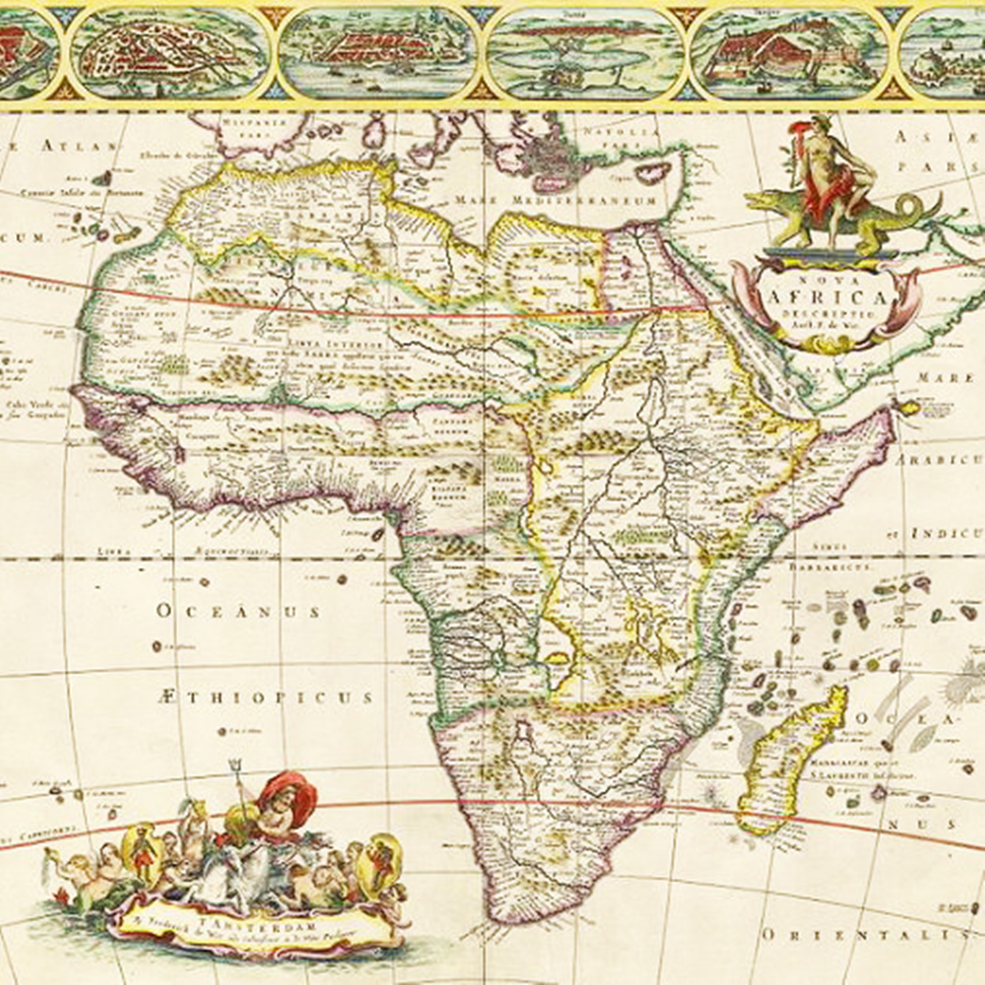The ancient Greeks called the continent Λιβύη / Libúē (“Libya”). As for the term Africa, it derives directly from the Latin Africa which comes from Afri or Afrou, the name of the goddess of the earth in Amazigh mythology. From Roman antiquity to the Middle Ages, the term only designated the part of North Africa surrounding Carthage, the south with a black majority being called Ethiopia (from the Greek Αἰθιοπία / Aithiopía). Thus, in Book V of Natural History, Pliny the Elder mentions the Niger River, which he calls Nigris, as a delimitation: “the Nigris River separates Africa from Ethiopia” and also mentions the “Ethiopian nations” who live on its banks.
The etymology of Africa has been the subject of many hypotheses:
- Etymologies prior to the 20th century are now nothing more than historical curiosities: Isidore of Seville derived this name from the Latin Aprica (“sunny”), Leo Africanus invoked a fictitious Greek word a-phrike (“without cold”).
- According to Michèle Fruyt, the term Africa appeared in European languages through the Romans who thus designated the northern part of the continent because, in Campania, Africus qualified the rainy wind coming from the region of Carthage.
- According to Daniel Don Nanjira’s hypothesis, the Latin word Africa could come either from the name Afridi, a Berber tribe that lived in North Africa near Carthage, or from the Phoenician term Afar meaning “dust”.
- According to other researchers, the word Africa comes from the Banu Ifren tribe (Amazigh tribe), whose ancestor is Ifren, also called Iforen, Ifuraces, or Afer (a term also meaning “cave” or “cavern” in the Berber language according to Ibn Khaldoun). Ifri, the singular form of the word Ifren, also designates an Amazigh deity.
- Still others designate the Banu Ifren as being the inhabitants of the ancient ifrīqīyā إفريقيا which formerly designated in Arabic the current Tunisia and that the name Africa comes from the naming of the tribe of the Banu Ifren. In addition, the Banu Ifren would be the Ifuraces, a tribe which brings together the Afar. The Ifuraces inhabited the ancient Tripolitania and are Berber Zenetes, whom Corripus designated in his book by Ifuraces.
For more information :
- https://fr.wikipedia.org/wiki/Portail:Afrique
- https://en.wikipedia.org/wiki/Africa
- https://africacenter.org/
- https://journals.openedition.org/etudesafricaines/
- https://etudes-africaines.cnrs.fr/
- https://journals.openedition.org/etudesafricaines/
- https://www.afdb.org/fr/documents-publications/economic-perspectives-en-afrique-2024

